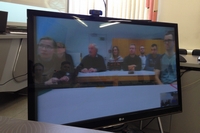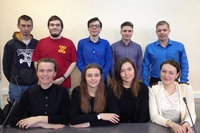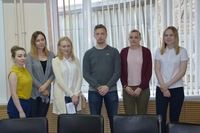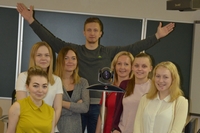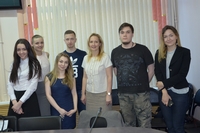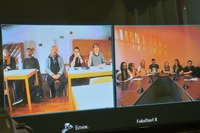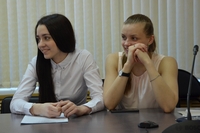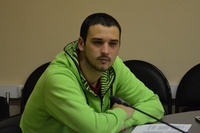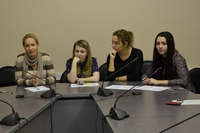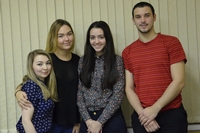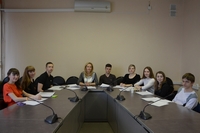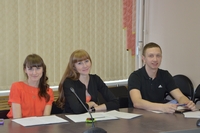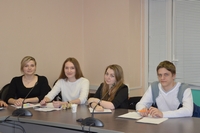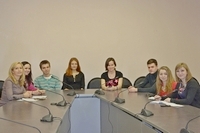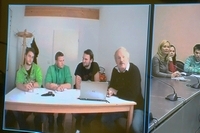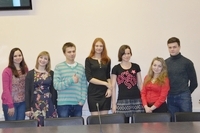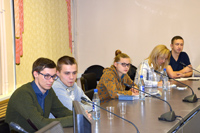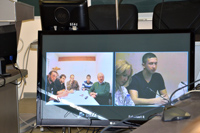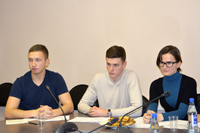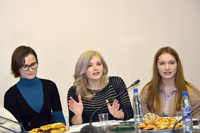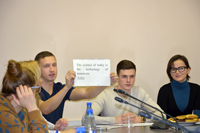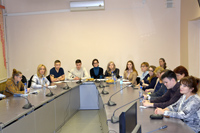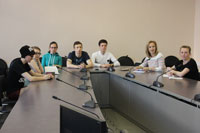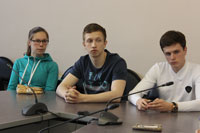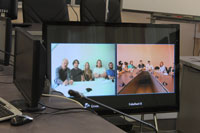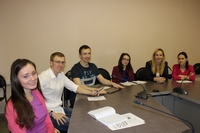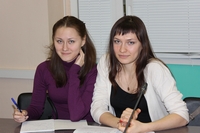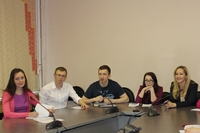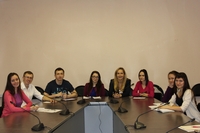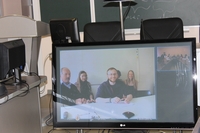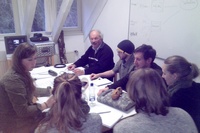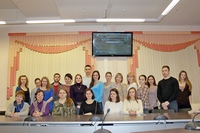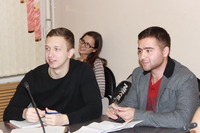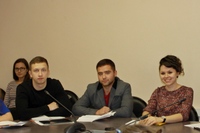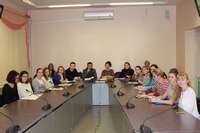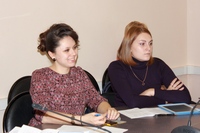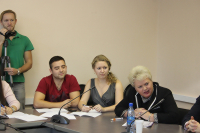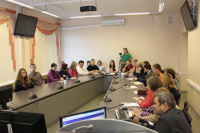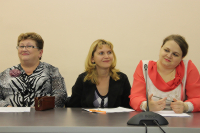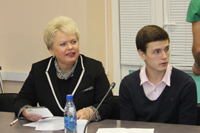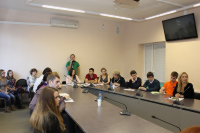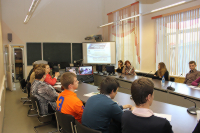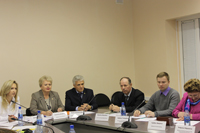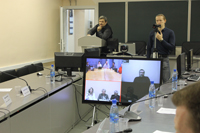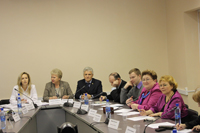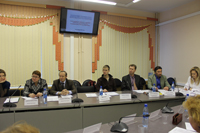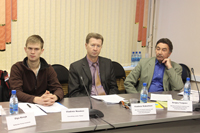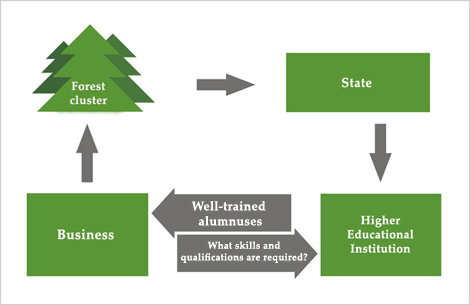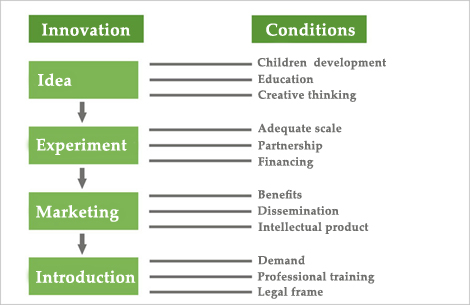
International Council in Forestry Higher Education professional training in the Finno-Ugric Countries and the Russian Federation regions
This network was established in August 2009 to share the best experiences in forestry and timber industry issues and to improve education, research, business and the state governing authorities' cooperation among the participants of the Council, which may definitely influence the quality of professional forestry education. Higher educational institutions have become today the centers which attract and unite research, business, training and governing structures and are supposed to accumulate new innovative ideas, create new knowledge, assist in problematic issues solutions. Finno-Ugric world is quite active in carrying out joint activities which are aimed at keeping the unique social-cultural traditions, ethnographic and linguistic peculiarities of its peoples, the International Council is supposed to become an international platform for sharing professional experiences and problem discussions dealing with the Forest cluster issues, as forest used to be the basic part of life and culture of the Finno-Ugric people. 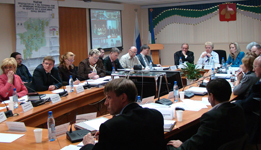
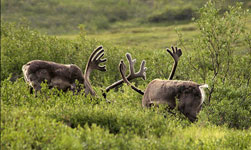
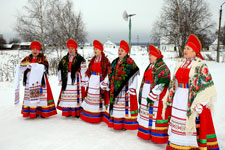
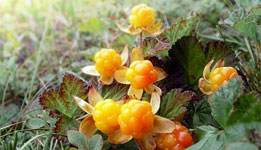
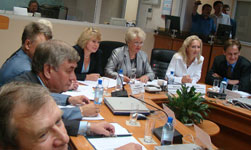
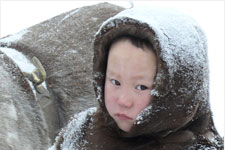
International Council's structure:
Basic documents of the Council:
Invited International Council participants:
Events: 29.03.2017 Students’ International Round Table discussion «World around us» The online students’ Round Table discussion about travelling in Russia and Germany was held on March 29, 2017 in the frame of the International Council in Forestry Higher Education professional training in the Finno-Ugric Countries and the Russian Federation regions activities. The topic for discussion was suggested by German students from University of Applied Sciences and Arts in Gottingen.
Students in Gottingen who are planning to participate in the International Forest School this autumn took part at the round table discussion. They were really interested in the Forest school program and coming activities in Syktyvkar and the Komi Republic. After getting acquainted the German students told about different cities in Germany, their specific characters and peculiarities, and about things that attract foreign tourists. Mecklenburg is the county in the northern region of Germany on the coast of the Baltic Sea impresses with its architectural monuments, ancient cities, and beautiful views of the sea coast. Dusseldorf attracts tourists with carnivals, Cologne, with its monuments. Both cities are located on the Rhine River in the federal state of North Rhine-Westphalia although are different in architecture, sights, and even local beer. Dresden is the administrative center of Saxony, one of the largest industrial, transport and cultural center in Germany placed on the Elbe River attracts art lovers with Baroque monuments, a great collection of paintings and other pieces of art. The economic and financial capital of Germany Frankfurt is located on the River Main, and is listed as an important cultural center, a city of banks, skyscrapers, great number of exhibitions, congresses and cider. Hamburg is the second largest city in Germany after Berlin, famous for its harbor, as well as the Christmas market that takes place in the central square in front of the town hall. If you are interested in ancient sights you should visit Munster – one of the oldest northern cities in Germany was founded more than 1200 years ago. There are many buildings from the 14th-18th centuries in the city, which are still in use. At the end of the presentation, we got the information about Gottingen, a city with a long history and famous Universities where more than 45 Nobel Prize winners used to study or give lectures, where 20% of the city's population consists of students from different parts of the world. Goettingen is also famous its museums, the old City Hall and the famous fountain "Ganseliesel" in the central square. Students from Syktyvkar Forest Institute told about places they have been to or where they would recommend to go to foreign tourists. We have a unique and huge country with a special history, nature and places worth visiting. Students told about the Golden Ring of Russia one of the popular routes among Russian tourists, as well as Russian resorts of the Krasnodar district, Crimea, capital cities of Russia and the Komi Republic. Most of tourists prefer visiting the biggest cities – Moscow and St. Petersburg. The city on the Neva River is also often called the northern Venice, the city of canals and bridges. It is common for tourists to visit St. Petersburg in June, enjoy midnight sun and romantic atmosphere. Its museums, theaters, architectural monuments, parks and palaces attract thousands of guests from all over the world. There are many ancient native Russian cities and one of them is Veliky Ustyug known as the Father Frost’s (Ded Moroz) residence. This northern city has managed to preserve the rich cultural heritage with wooden houses and churches since 17th-18th centuries. The Komi Republic attracts tourists with the unique nature, hospitality and culture. One can find virgin forests in fact the "lungs" of Europe. The Republic is considered the best place for nature-based tourism and recreation activities. Hiking routes to the Ural Mountains, in the national park "Yugyd Va" and Pechoro-Ilychsky Nature Reserve are really popular among tourists who are interested in active recreation. The Man-Pupu-Ner rock formations is the republican “visiting card” really unique and specific place located in the Natural Reserve and were included in the list of the 7th wonders of Russia. At the end of the discussion students have come to the conclusion that while travelling to different cities and countries we usually learn a lot, widen our scope of mind and get better understanding of the culture and history. In September 2017 we are looking forward to the visit of German students that are going to take part in the Forest School 2017. The online students’ Round Table discussion about studies at home universities in Russia and Germany was held on May 23d, 2016 in the frame of the International Council in Forestry Higher Education professional training in the Finno-Ugric Countries and the Russian Federation regions activities. This time the topic for discussion was suggested by the German students from University of Applied Sciences and Arts in Gottingen.
The round table began with a brief presentation of educational system of higher education in Germany. German higher education was reformed in 2005–2010. It is common for German students aged 18–19 to look for a study of their interest after 13-years of school studies and after they pass Abitur – the general qualification for University entrance. Bachelor studies last for 3 years with 180 credit points and then students have 12 weeks of practical training in the 5th semester. Every semester lasts for 15 weeks and finishes with two weeks of examinations. Bachelor thesis should be done within 8 weeks in the 6th semester. 50% of bachelor graduates are looking for a job, and the others continue with a Master degree, which should conform to Bachelor degree, after that one can get a Master degree in another field if he/she wants. If the graduate is interested in continuation of his/her education he/she could enter the postgraduate center or the doctoral training center. The state provides financial support to students who are getting the bachelor and master degrees in case their parents have a low family income. German students noted that a transition period to the new education system was complicated, due to reduction of the educational period, today they don’t have enough time for practical training and half of the study material students have to learn by themselves, that’s why the quality of students’ education is getting worse. For the individual work some universities introduce the course of project activities where students develop their own projects. Russia being involved into the Bologna process, has chosen a two-level system of higher education including bachelor (3-4 years of study) and master (1-2 years) degrees as well. In foreign countries students get all study material, info, presentations, and lectures, on the University learning platform. But, anyway, lectures and communication with teachers are still important. Students in foreign institutions have more freedom when they are planning their study plan based on their interests and requirements. It makes students more responsible in studies and helps to plan free time in the right way. In Russia all students study compulsory subjects according to the State Standard of Education and the elective subjects are determined by the University faculties or departments. General knowledge and wide scope of mind is really important for graduates besides their professional skills, qualifications and competences, they should also be ready for lifelong learning. Students exchanged their opinions about studying at home institutions, their majors and future profession expectations. Forestry students noted that they would like to have more practical training and excursions. It was nice to hear that all the participants have made the right decision by choosing the profession and are looking forward to achieve good results and do their best to graduate with the best results. 25.04.2016 Students’ International Round Table discussion “Social networks as a communication tool” The online students’ Round Table discussion “Social networks as a communication tool” was held on April 25th, 2016 in the frame of the International Council in Forestry Higher Education professional training in the Finno-Ugric Countries and the Russian Federation regions activities. Social nets play a significant role in the modern world as this communication tool allows people to keep in touch, do business, make researches, etc.
Students from Syktyvkar Forest Institute started the online meeting with a brief historical background. Social nets started in 1993, when Ted Leonsis sent the first instant message by AOL service. Ever since many new inventions have been made, eventually we get an opportunity for online communication today. Facebook appeared in 2004 and has become the most popular social net within a short period of time. The Russian social net Vkontakte was made in 2006 and today is used by more than 80 mln people. It is common for most Germans to use Facebook, whereas Russians prefer Vkontakte. At the meeting students discussed the importance of social nets for people, how comfortable they would feel if they forgot the phone at home or lost it and how social networks influence everyday life in the contemporary world. A mobile phone today is not a luxurious item as it used to be 15 years ago, then it was hard to imagine even small children walking with mobile phones in their pockets. Smartphones have become a popular and compact notebook with contacts, important dates, different files and photos, the functions of the radio, TV and computer. By using modern mobile phones people can keep in touch, have an opportunity to communicate with friends and relatives who are located in different cities and countries all over the world. Mobile phones have recently become an integral part of our lives and a faithful mobile assistant, as rapid speed of life, everyday goals and aims require keeping in touch and being online most of the time. Some people would feel comfortable if they forgot mobiles at home, whereas the others tend to think that mobile phones are too important and they would be nervous without the Internet connection, social nets and e-mails. In the age of information technologies it is very difficult to protect children from using different modern items and gadgets: tablets, computers, mobile phones, iPads. Social nets are getting more and more popular among teenagers, children have become more addicted to virtual world and it replaces in-person communication, going out by online communication. Children and students spend almost all their free time in front of a computer or a mobile phone and lose real communicative skills. It is definitely a big challenge and an obvious disadvantage of modern technologies. At the same time, social nets are used by swindlers who are stealing money from careless users of social networks who leave confidential information in the public domains and it sometimes causes real troubles. But in spite of all disadvantages it is important to note that modern Internet technologies and tools give more opportunities to learn, to get required information, to make deals, to get distance education, to keep in touch with friends, to earn money, and to save life. Notice, a mobile phone can be a real help in the outback in case of an accident, heart attack or being lost. So modern information technologies are doubtless a convenient tool and it depends on us how to use them in everyday life. Next time students are going to discuss their studies and how knowledge is delivered at their home universities in Russia and Germany. 25.11.2015 Students’ International Round Table discussion “National cuisines, meals and health” On November 25th students from Syktyvkar Forest Institute (SFI) and Gottingen University of Applied Sciences and Arts (HAWK) met at on-line Round table to discuss national cuisines, meals and health. The event was organized in the frame of activities of the International Council in Forestry Higher Education professional training in the Finno-Ugric Countries and the Russian Federation regions. Healthy food as well as healthy lifestyle have become a trendy issue recently. They say: “We are what we eat” as food affects on our health, mood, and physical appearance. It seems that young people are tend to eat fast food too much, that is considered to be the cheapest and it looks as if they’ve forgotten about traditional national cuisine. But that’s only at first sight, the discussion has revealed the students’ interest in traditional dishes and items. One can’t imagine celebrating any special occasion without a nicely decorated table with lots of delicious dishes containing “extra” calories.
St. Martin's Day (Martinstag) on November 11th is one of national holidays in Germany. This holiday is the last one before Christmas so it is common for Germans to celebrate this day with a roasted goose and to have fun. At the beginning of December Christmas markets are opened all over Europe, there one can find all kinds of meat, fruit, nuts, sweets, chocolate and various gifts. People enjoy the holiday and joyful atmosphere. Shops windows, houses, streets and trees are nicely decorated for Christmas. December is rich in holidays and children enjoy one more on December 6th, that is called St. Nicholas Day. The evening before the celebration children put in order their shoes and put them at the door. They believe that, St. Nicholas comes at night and puts presents in children’s shoes. If children behave well they get toys and sweets, if not – some coal. Christmas is a family celebration and most people tend to stay at home and have an excellent family dinner full of delicious dishes. In Russia people are used to celebrate New Year – one of the most important holidays of the year, Christmas is celebrated later, on January 7th. New Year in most cases is associated with the smell of tangerines, spruce and warm joyful family atmosphere. All December people are preparing for New Year celebration; shops windows are full of lights, presents and colorful signs, main city squares are decorated with big Christmas trees, children are looking forward for Ded Moroz and Snegurochka visits, and everyone believes in miracle and wishes happiness for the coming year. Russian students told about national meals that are usually served for New Year dinner. Many Russians believe that if you have lots of food on the table the coming year is abundant and wealthy. It’s common for Russians to celebrate this holiday with their families and relatives, young people prefer having fun by going to the clubs and restaurants with their friends after midnight. New Year holidays usually last until January 10th, people enjoy spending this time with families, going skiing, skating, watching movies in the cinema, entertaining or visiting friends. Being a veggie is becoming more and more popular. Some follow diets for health reasons and prevent a number of chronic diseases, and some can’t afford eating meat. However, you should remember that any diet should be various and well-balanced. In Russia we have one more old tradition, our people are used to go to banya to take care of their health and rest. Most people go to banya every week, it is quite typical especially in the northern part of the country. Traditional way of life and healthy food helps people to keep in a good shape and to be in a good mood. One can easily learn about people in different countries by their national customs and cuisines. The next Students’ International Round Table discussion is planed for February 2016. 15.04.2015 Students’ International Round Table discussion “Education in the contemporary world” The online students’ Round Table discussion “Education in the contemporary world” was held on April 15th, 2015 in the frame of the International Council in Forestry Higher Education professional training in the Finno-Ugric Countries and the Russian Federation regions activities. The suggested topic was initiated by the students who realize the importance of education in the modern world. Education is an important tool that is applied in the contemporary world to succeed, as it mitigates the challenges which are faced in life. The open doors of opportunities enable individuals to achieve better prospects in career growth. Education has played a paramount role in the modern industrial world. The foundation of society is based on education since it brings economic and social prosperity. Gaining education enhances an individual to live a respectful life in the society. This is because education offers a setting in which culture and values of a society are developed. The discussion started with the introduction of educational systems in Russia and Germany in order to find similarities and differences. In Russia children start learning since the early age of 2-3 years, then they continue 4 years in the primary school at the age of 6 or 7. The secondary school is compulsory to all children and basic general education lasts for 9 or 11 years. After the ninth form you can either continue studies at professional colleges or vocational schools or finish the secondary school at the age of 17-18 years. Graduates of secondary schools apply for entrance to higher educational institutions. Higher education has two levels: Bachelor and Master Degrees. The academic year lasts from 1st September to the middle of June. After a Master Degree students can get a PhD degree and then a Doctor degree of Science if they want to make a scientific career.
In fact, Russian higher educational system started with the foundation of the universities in Moscow and St. Petersburg in the middle of the 18th century. The system was similar to that of Germany. Higher education was and still is considered to be prestigious; more than 50 % of Russians try to get a degree today. For a long time education was free of charge and students took the entrance exams at Universities. Recently most students have to pay the education fee. Today there are 548 State supported and 402 private Universities in Russia. 8 State Federal Universities in Russia were established not long ago. In the Komi Republic today there are 4 State educational institutions. German students told about the educational system of their country. Children go after the kindergarden (age 1-5) to a primary school at the age of six for four years, after that they have to choose one type of the secondary school. The first type is General school where the main objective is to prepare pupils for the professional work. Children obtain their certificate at the age of 15-16, and then can get vocational training, start entry-level work in the public sector, or attend a full-time vocational school. The second type is Gymnasium. This is the most demanding of all secondary schools in Germany. The Gymnasium serves as a preparation for higher education. Another type of school is the Real school that is preparatory for vocational education or training in many crafts. Therefore, these schools strongly focus on core subjects like Maths, German, Computer science and vocational studies. The last type is the Comprehensive school: it combines elements from all types of schools. Pupils usually spend six years at this school and either obtain a General school , a Real school certificate or the A- Level after 9 years. Higher Education Institutions are either state or state-recognized institutions. There are Bachelor degree (3 years) and Master degree (2 years) studies. 108 State Universities including various specialized institutions offer the whole range of academic disciplines. In German tradition Universities focus on particular on basic research so that advanced stages of study have mainly theoretical orientation and research-oriented components. Most of students (1,7 Mill.) study at Universities. 216 Universities of applied sciences focus on engineering and other technical disciplines, as well as business-related studies. The common mission of applied research and development implies a distinct application-oriented focus and professional character of studies, which include integrated and supervised work assignments in industry, enterprises or other relevant institutions. Almost one third of students (0,8 Mill) attend universities of applied sciences. Private Universities are always accredited by the state, have education fee but are quite popular among the young people as they offer good job opportunities for graduates and in way guarantee the work placement (137 000 Students). There are a couple of scholarships in Germany and a number of private and public institutions award scholarships—usually to cover living costs and books. In some cases students pay reduced fees for administration services. Students out of European countries can get some financial support for temporary education or practical training in an other European country – ERASMUs + Program. Whereas some students in Russia pay for education (commercial students) and some are government supported students (budget students). If budget students have good results in their studies they get a scholarship. It’s sometimes difficult to find a good job just after graduation in Russia, because many organizations require specialists with work experience. In case of a very good running Industry in Germany there is lack of engineers and the job market is very positive after graduation. The main request for young specialists is work experience. The most popular professional trends among men in Germany are: economics, mechanical engineering, and informatics; among women: economics, germanistic, medicine. Young people also told about their favorite subjects, all agreed that key major subjects are interesting and very important, but the role of the teacher who conducts the class is even more important as “teacher is a key to any subject”. The ideal professor should involve students into the subject area, should be communicative and really involved into what he/she teaches. At the end of the discussion students have agreed upon the next meeting in May 2015. 17.12.2014 Students’ International Round Table discussion “Mobility and tourism” Just a week before Christmas and winter holidays students from Syktyvkar Forest Institute and Göttingen University of Applied Sciences and Arts (HAWK) met online to discuss tourism and mobility in both countries. A developed infrastructure gives a lot of opportunities for people and is used for different purposes. German students have acted as the Round table moderators and started the discussion with mobility facts and statistics. The students told about transportation facilities, preferences of the local people to travel within the country. Germany is not as huge as Russia so people quite often go to work by trains around big cities due to parking problems or by cars; there is no need to use internal flights because there is a well-developed automobile roads network in the country. The total length of German roads is 53 000 km for 44 mln cars and 4 mln trucks but it makes a small part of 1 100 000 km of Russian roads. Automobile roads are often used for transport connection between the cities and transportation of goods between different regions and constituent entities of the Russian Federation. It’s quite common for Russian people to travel by trains but it takes a lot of time and the distance from the West to the East is tremendous. In both countries there are a lot of beautiful rivers that are used not only for transportation, but also for tourist cruises. One of the most popular cruises is “Russian Golden Ring” when you have a chance to visit the oldest Russian cities with the unique monuments, old churches and learn a lot from the history. Nowadays river rafting becomes more and more popular among Russians and there are many rivers in Karelia, Murmansk region, Sochi, the Caucuses, Altay, the Urals, etc where people can go rafting. Kamchatka, with its volcanoes, bears and rivers is not only a perfect place for going sport, but also gives a chance to enjoy the wildlife and beautiful nature.
Both countries have got a developed infrastructure and a natural diversity, so tourism has big perspectives especially in Russia. There are currently a lot of programmes to promote nature-based tourism. Germany takes the third place in the list of popular European countries among tourists. According to statistics more than 1,2 mln Russians visit Germany annually and more than 800 thousand people travel to Germany as tourists. Germany attracts its 31 mln tourists from all over the world and even 123 mln German tourists by historical monuments, historical sights, picturesque landscapes, Oktoberfest and shopping opportunities. The most popular cities among tourists are: Berlin, Munich, Hamburg, Frankfurt am Main, Dusseldorf, Dresden, Stuttgart, Nurnberg, and Leipzig. Baden-Baden has been taking a special place among Russian tourists since the Tsarist era. Famous people like Feodor Dostoevsky, Ivan Turgenev, Lev Tolstoy, Nikolai Gogol and Vasiliy Zhukovskiy arrived there. But Göttingen, a beautiful city in Lower Saxony is also worth a visit, some SFI students and a group of lecturers have been there and were amazed by its charm. Russia is also popular internationally and many tourists visit different cities and places every year. But you should keep in mind its diversity, as it is situated in several climatic zones, it differs in relief and nature, has a long history, 11 times zones and there are hundreds of small and big nations with their own unique traditions and customs. So, if you want to learn about Russia, you should visit several places to enjoy its diverse. Students from Göttingen were interested in what to see and where to go in the Komi Republic. The plateau Manpupuner – the winner of the contest “7 Russian wonders” is a one of the most interesting places in our region, there are lots of legends about it. Pechora-Ilych nature reserve in the north Ural Mountains was created for the nature complex reservation and attracts people with pristine nature and beauty. On the territory of this nature reserve there are weathering pillars and also an elk’s farm. Friedbert Bombosch, professor from Göttingen University of Applied Sciences and Arts noticed that modern tourism sometimes can damage the environment and it is necessary to increase tourism culture, to create special technical devises. The big number of tourists in the Alps has already created a number of challenges today. At the end of the meeting students told about their favorite places to travel and congratulated each other with the coming winter holidays. Next time students are going to discuss educational systems of Russia and Germany approximately in March 2015. 29.10.2014 Students’ International Round Table discussion “Science – is easy, isn’t it?!” In October 2014 Syktyvkar Forest Institute took part in the All Russian festival of science. One of activities during the festival was a Student’s Round table “Science – is easy, isn’t it?!”, where Russian and German students that study different courses discussed their attitude to science, spoke about their academic interests, R&D at the Universities, shared peculiar historical scientific facts in different fields of knowledge. Research and development work and applied researches are really important in both countries. During the first and second years of studies Bachelor degree students get basic knowledge in their profession. All students are going to make a research for the thesis work that can become a professional interest in the future.
In Germany Universities of applied sciences are very close to enterprises and business companies. Companies often ask Universities to make some researches, to find the required information, to make the analysis, such researches are made by the students supervised by professors and usually students get payed for their work. Sometimes students find the theme of their research by themselves and can be a success or fail with their investigations, if the result is successful the invention can be named after the students who has created it, it might become a good motivation. Professor Friedbert Bombocsh from Göttingen University of Applied sciences and Arts told about his own experience in R&D activities. He has been working for several years with the group of German and European researchers in the project that was aimed at creation of a laser caliper for forest measurements, and also has got some experience of the project for a new forest truck with the use of a sledge for transportation of timberlogs. In the Komi Republic we have got an interesting educational project “Komi Forest Academy”, supervised by JSC “Mondi Syktyvkar” and the Komi Republic Government. In the frame of this project there is an annual contest for R&D groups of students and teachers. R&D groups study various challenging issues in timber industry, timber processing, forest regeneration, nature protection. The best researches are awarded with the prizes; they also get financial support from the enterprise. The best studies and researches are implemented at the pulp and paper enterprise “Mondi Syktyvkar”.
Students from SFI acted as moderators of the discussion and prepared interesting facts about the world scientific inventions and famous scientists. For example, Karl Friedrich Benz-a German engine designer and a car engineer invented the first automobile powered by an internal combustion engine. Rudolf Diesel, a German inventor and a mechanical engineer became famous for his invention of the diesel engine. Cellophane was invented by a Swiss chemist Jacque E. Bradenberger. Alfred Nobel invited dynamite – an explosive that was stronger than black powder. SFI students shared their personal scientific interests in economy, ecology, construction engineering, information technologies, and forestry, almost all students took part in some R&D conferences and seminars, some of the students have had publications in the SFI collection of the articles. Some students are going to continue scientific researches and combine it with their professional activities, some of them are going to get a Master degree. Göttingen is known all over the world as the city of “knowledge”. There are four Research Institutes named after Max Planck, Göttingen is proud of 44 Nobel Prize winners. In Syktyvkar there is the Komi scientific center of the Ural Branch of the Russian Academy of Sciences. This center is coordinating scientific researches in our republic, has good international relations, and arranges annually more than ten of All Russian and international scientific conferences. Students also played “Believe or not believe” game they asked each other questions about famous inventors. The Round table had a friendly and homelike atmosphere, in spite of quite a serious topic of the meeting. At the end of the meeting students wanted to continue and the next meeting will be moderated by the German team. Students would like to talk about tourism and mobility next time. Participants from Syktyvkar Forest Institute (SFI): Students: Vladislav Evstigneev, Elizaveta Maltseva, Viktoriya Sergeeva, Nikita Sukhov, Vera Razmyslova, Anna Karakchieva, Sergei Popov, Ivan Kravtsova, Anastasiia Grubskaya; SFI staff: Kseniia Chukileva, Natalia Sedusova, Liudmila Gutii, Svetlana Sharapova. Participants from Göttingen University of Applied Sciences (HAWK): Students: Tom Kähler, Johannes Stake, Franz Reppenhorst, Alexander Knöttgen; HAWK staff: Friedbert Bombosch. On May 26th 2014 students from Syktyvkar Forest Institute (SFI) and Gottingen University of Applied Sciences and Arts (HAWK) had the last video Round Table discussion “Sustainable management in natural resources, regional development and ecology” in this academic year. The event was organized in the frame of activities of the International Council in Forestry Higher Education professional training in the Finno-Ugric Countries and the Russian Federation regions. Friedbert Bombosch, professor from Gottingen University of Applied Sciences and Arts started the meeting with general information about ecosystems and their natural cycle, human influence on ecosystems functioning. Ecosystem is always changing influenced by different factors, for example, climatic changes or forest fires, storms, windfalls, earthquakes. Developing industrial production also influences on natural ecological systems changes. Anthropogenous factors influence ecosystems by pollutions, and intensive use of natural resources in a different/negative way. Students from both countries noted that humans have to remember one simple rule: if you affect nature you change your own habitat as well. Peharps humans adapt the changes better than plants and animals, but development never stop and goes to a new and next cycle. It can either lose some biodiversity, or win new conditions for a minority.
Syktyvkar students learned about wastes and rubbish recycling in Germany. In most European countries wastes are collected separately in all cities there are waste containers for paper, plastic, metal, electronics and glass. Special machines for utilization of used plastic bottles and tins are situated in the big supermarkets. Old and unnecessary furniture is also recycled and the received chips can be used for heating purposes. So in Germany system of wastes recycling has started long ago, whereas in Russia wastes cause a big problem today. Utilization issue is on the first place: in Russia people try to use wastes in industrial production in order to decrease use of natural resources. Recycled rubbish is a benefit especially from the ecological point of view. In both countries students think that keeping traditions of sustainable development in different spheres of life, studies of experiences, innovative technologies and best practices distribution will lead to regional sustainable development. For example, collecting berries and mushrooms has always been a part of traditional way of life of the Komi local people, especially for old people, who understand the value of forests and natural way of life. They try to forward this experience to younger generations. Any national culture with centuries-long history has unique components like life and household way of life, folk-applied traditions and orally-poetic creative works. In Komi people used to have a lot of crafts: metal working, different types of netting from leather, birch bark, wood carving. They had farm cattle, sheep and horses. Reindeer husbandry was specific among the northern Komi people. Each rural family gathered berries and mushrooms for their own needs and for sale as well. So, sustainability is a long complicated process that starts in the past, continues in the present time and keeps the future. Learning the past we should develop in the present time to have the future. At the end of the meeting students asked each other questions about IT methods in forestry and about forest fires situation. Next academic year students will continue with International Round Tables and will discuss professional and everyday life activities topics. 20.03.2014 Students’ International Round Table discussion “Traditions and customs in Russia (Komi) and Germany” Students from Syktyvkar Forest Institute (SFI) and Gottingen University of Applied Sciences and Arts (HAWK) met at the Students’ Round Table Discussion to discuss traditions and customs in Russia (Komi) and Germany. The idea was suggested by the students during the previous video meeting. Intercultural communication is really important for people to get a better understanding as we quite often have stereotypes about different customs and cultural traditions of each other. Quite often people believe in myths that have long historical roots.
Students from both countries spoke about their customs, everyday lives, likes and dislikes. HAWK students told about old traditions, that are kept by Germans but differ in the North and in the South. People in the South seem to be more communicative and willing to socializing. In the North it takes some time to climb the barriers for a warm friendship and hospitality. It’s quite common for Germans to have festivals and celebrations; sometimes they are devoted to special crafts. The oldest and the most desirable holiday for children is St. Nicola’s Day on December 6th because children usually get lots of surprises. Children usually leave boots outside and parents put sweets and small presents inside. Almost all people like keeping this tradition as it’s a bright and kind holiday. Russian kindness, openness and hospitability are world-famous. Russian students told that it’s common for Russians to visit friends without any invitations, but a visitor should bring something for tea or coffee: sweets, cakes, chocolates, etc. Germans would rather meet in pubs, restaurants or cafes. Students from both countries know a lot about folklore. German students were pleased to learn that students in Russia are familiar with German fairy-tales by Hauff and Grimm brothers. In both countries parents read fairy-tales to their children, but they have different content. Speaking about meals, the students found out that both countries prefer traditional meals. Russians eat different soups, salads, Komi fish dishes, meat, shangas with different fillings, and of course potatoes. In Germany people have a lot of potatoes too, like meat and fish dishes, have different kinds of bread for breakfast, have eggs at the weekend. Most young people keep healthy lifestyle and cook for themselves.
German beer is famous all over the world; it differs according to various regions. Many people go to Oktoberfest beer festival in Bavaria. Russia is famous for its vodka. This drink is of a high quality but quite strong. Students told that not all people in Russia like it and mostly have it on special occasions. Germans like travelling to Spain, Italy, Austria and overseas USA, Australia New Zealand. But they also enjoy going out to the mountains or relaxing at the seaside. Russians enjoy travelling to Europe, where they need to have a visa. Lots of Russians also travel to visa-free countries: Turkey, Egypt, Thailand and the Russian seaside. One of the German students came to the video round table with a dog and at the end of the meeting it got acquainted with participants, and students discussed about pets. In Germany people pay a tax for the dog, which depends on the dog’s size and the town, where the dog lives. Every dog has to have an insurance. It is sometimes quite expensive to have a pet dog, whereas its free for Russians. In both countries birthday parties are celebrated in big companies with friends or family and relatives, but that also depends. Most people like having fun, sing songs, dance, play funny games. In Russia some people give money as a birthday present, in Germany it is not common. Some things are not acceptable as a birthday present in both countries. For example new shoes in Germany might mean a wish to split out the relationships. Young people prefer to live separately from their parents. Students from Russia are not able to buy their own apartments and their parents help them quite often. Some students live with parents and save money for their own accommodation. In Germany it’s not expensive to rent an accommodation and they can also save money for their own house or apartment. Germans think that if you want to be independent you don’t need to have lots of money; you can get everything step by step. At the end both teams sang Christmas songs, though in Goettingen it was +20 c, all students felt friendly and concluded that in spite of lots of differences we have a lot in common. Now we learned some national differences and our communication has become easier. Next time the students are going to speak about sustainability in many spheres: natural resources management, ecology, regional development, hunting in May. Participants from Syktyvkar Forest Institute (SFI): Anna Karakchieva, Vladislav Evstigneev, Evgeniya Izuyrova, Marina Kustova, Alisa Maksakova, Yan Chernetskiy, Mariya Yanina, Kseniya Aleksandrova, Natalia Sedusova. Participants from Gottingen University of Applied Sciences (HAWK): Peter Bieler, Daniel Knorn, Christian Theissen, Dorothea Heinemeyer, Tobias Eckardt, Sina Tippe, Friedbert Bombosch. 6.12.2013 Student’s International Round Table discussion “Climate change – a human made problem?” The online students’ Round Table discussion “Climate change – a human made problem?” was held on December 6th 2013 in the frame of the International Council in Forestry Higher Education professional training in the Finno-Ugric Countries and the Russian Federation regions activities. The topic was suggested by the German colleagues from Göttingen University of Applied Sciences and Arts (HAWK) in November this year. Students from both education institutions decided to discuss the problem of the climate change, plants' emissions into the atmosphere, tried to define the main reasons for changes and learn how the climate changes in Syktyvkar and Göttingen. Sina Tippe, a HAWK student, greeted all participants in the Russian language and it created a friendly atmosphere from the beginning. Students majoring in different spheres: economics, environmental protection, chemical wood processing technologies, forestry viewed the subject matter of the meeting from different angles. Answering the challenging question, that made the topic of the meeting, if the climate change is a human made problem was not simple for all the students. HAWK students prepared the introduction to the topic and listed the statistics facts. A number of floodwaters, fires, storms, earthquakes, ice melting etc. is increasing every year. But at the same time the climate has been changing all the time and there are lots of historical proofs for that, the difference now is that they are going faster. 0,038 % of Carbon dioxide is in the air. There is an opinion that we are currently in a warm period of an ice time.
Everybody has recently noticed that our climate is changing annually, for example in Syktyvkar the beginning of winter used to be really warm, and in Göttingen there was a few snow on Christmas during the last two years. CO2 has got the higher concentration in the atmosphere, it is caused by several reasons: 30 % pollutions is made by power plants, 20 % by industrial processing pollutions, 20% – by transport, 30% is made by the human activities (flats, water and etc.). Climate change is the global problem but is affecting everyone. There were two completely different points of view about the personal influence on such global processes. Some students sticked to the opinion that the process is too global to be influenced or changed by one person, people can just adapt for changes when possible; the others believe that if every person uses energy-saving technologies at home, uses less of water, plants new young trees, rides a bicycle instead of a private car or uses public transport, takes care of nature and becomes ecologically friendly, all these will probably influence the carbon dioxide emissions reduction. In Göttingen most of students use bicycles because it costs less money, there are more than 5 000 bikes at the campus. Christmas is coming and on Saint Nicholas’ Day the participants could not avoid speaking about the coming holidays. In both countries people traditionally have Christmas trees in their houses. So the students asked each other if they have a natural or an artificial tree on Christmas. All HAWK students are planning to have a natural Christmas tree, while SFI students use both artificial and natural trees. Some people think that artificial trees are better for the environment, but the production takes energy and that means CO2 emissions. People are used to traditional way of having and decorating a natural Christmas tree, especially if the whole process is well-developed in Europe and in some big Russian cities as well.
Use of the bioenergy (green energy) is also a new trend for Russia. Germany will stop nuclear power and use more energy by wind, sun, water and biogas, - it is supported by the State by means of subventions. There is currently the tendency to reduce the speed of development in the future, as it’s a really expensive way to go. In Komi, according to the strategic planning non-commercial timber, timber wastes use and pellets and briquettes production are rapidly developing. We can also calculate the anthropogenic pollution as there are 790 million cars in the world, but still the industry is the most responsible for pollutions. At the same time volcano eruptions, peat-soil areas, volcano lakes also influence the situation with CO2 emissions. People should keep in mind that we don’t inherit the Earth from our fathers; we borrow it from our children. If everyone starts with him/her self, if we stand together, we can manage the situation step by step. It’s really important to protect the environment – we have no chance to influence the climate! At the end of the meeting all participants congratulated each other with the coming holidays and have decided to continue the tradition of having the students’ round table discussions next year. Hopefully the Finnish colleagues will join the next meeting. It is likely to be held in March 2014 and will be about traditions in Russia/Komi, Germany and Finland. 9.10.2013 Students’ International Round Table discussion “The world needs Science. The science needs us” On October 9, 2013 in the frame of the International Council in Forestry Higher Education professional training in the Finno-Ugric Countries and the Russian Federation regions activities SFI together with Goettingen University of Applied Sciences and arts and Tampere University of applied Sciences organized the on-line Students’ Round Table Discussion “The world needs Science. The science needs us”. Students from Russia, Finland and Germany shared their experience in making research at home educational institutions, discussed the necessity of making scientific researches. Students from Russia prepared special curious facts about scientific inventions and life of famous scientists. Participants from Germany told about the importance of the interdisciplinarity in scientific research. Scientific research carried out by a group of researchers that are professionals in different spheres are in practice the most efficient and interesting from the applicability point of view. Ability to interact in a team, fall beyond the scope of traditional visions quite often guaranteed a breakthrough in scientific researches. Participants from Finland underlined the importance of participation in joined research carried out by representatives from enterprises and companies as theoretical knowledge without any practical application and experience can’t be efficient and useful for the enterprise development. TAMK is actively involved in various R&D projects in Finland and at the International level. Site visits, work in international groups, students’ exchange programmes is also really good for the students. All the Round Table participants got the common understanding in the conclusion that they should continue in R&D activities and Syktyvkar Forest Institute invited the students to take part in the annual students’ R&D conference in April 2014. They do not necessarily need to arrive personally, but can send the article or report for publication. All participants also supported the idea of on-line Students’ Round Table Discussions and assured the wish to participate in the future meetings.
The video-conference in the frame of thematic sessions of the International Council in Forestry Higher Professional training in the Finno-Ugric countries and RF regions was held on December 10, 2012. Participants from Swedish University of Agricultural Sciences, Göttingen University of Applied Sciences and Arts, Petrozavodsk State University, Izhevsk State Agricultural Academy, Ministry of the national policy of the Komi Republic, Ministry of natural resources and environmental protection of the Komi Republic, Republican centre responsible for nature protected areas and nature use, Consulting Centre “Tefra”, Syktyvkar Forest Institute took part in the event. The video-conference discussion was devoted to issues dealing with spatial planning and management of the nature protected areas located on the territory of the Russian Federation, the Komi Republic and Sweden. The participants discussed NPAs distribution, location, management experience and challenges. Vladimir Kabantsev from the Ministry of natural resources and environment protection of the Komi Republic presented the information about the current system of nature protected areas in the Russian Federation, defined the NPAs categories, spoke about NPAs distribution on the territory of the Russian Federation. The Head of the Environment protection management Department mentioned that making the efficient NPAs system which solves ecological and social goals is the one of the important strategic missions. Russia inherited from the USSR quite a complicated system of NPAs categories, which was gradually formed. There are 232 NPAs with a total area of 53, 2 mln ha in Russia today. These NPAs can be divided by the categories: strict protected nature reserves including biosphere reserves, national parks, nature parks, state nature reserves, natural monuments, dendrological parks and botanical gardens, health and recreation localities and health resorts.
Sergey Tsogoev in his presentation pointed out that the Komi Republic has the leading position in number of NPAs on the Russian Federation territory, informed about the history of the system creation. In the beginning of the 18th century Peter I made the order to establish nature reserves for Mast pine trees in the river basin of Vychegda and Udora. Today there are 240 NPAs with the total area of more than 5, 6 mln ha. The National park “Yugyd Va” and Pechoro-Ilychsky state strict protected nature biosphere reserve are included into the world environmental heritage UNESKO since 1995 and are known as “Pristine forests of Komi”. 164 state nature reserves, 73 natural monuments, 1 protected nature landscape have regional importance. The Head of the Kortkeros regional Administration Vasily Goncharenko noted that environmental education of the population is really important. Since November 2012 the newspaper “Ecological vestnik” is published. To have the good cooperation with the local population, people should have enough knowledge about sustainable management and development and should understand its importance. Docent of the Forestry Department from Petrozavodsk State University Grigory Romanov was interested in relations between the local population and state authorities, responsible for NPAs management, because in Karelia there are cases of conflict situations. Participants shared their experiences of cooperation between the Government and local population in the Komi Republic and in Bergslagen. Per Angelstam, Robert Axelsson, Marine Elbakidze from Swedish University of Agricultural Sciences told about the strategic planning of the protected areas in Sweden. Most of forest land is owned by forest companies (50 %) and forest owners (25 %). The Government buys land areas from the forest owners and establishes NPAs on these territories. At the same time big forest owners can establish their own voluntary NPAs on their territories. The comparative analysis of 17 086 NPAs was made in the frame of the project about a century development in Europe’s boreal forests. The researchers made several conclusions: the existing NPAs show a poor representatively among the northern, middle and southern boreal forests since the beginning of 20th century; by the end of 2010 the area proportion of PAs was 10.8% of the total boreal forest area in Europe with 17.2% of the total area of northern, 7.9% of the middle and 8.7% of the southern boreal forests. The uneven representativity of PAs in Europe’s boreal biome and each country that was maintained during almost the entire century has been and is a big challenge for boreal biodiversity conservation today. Another challenge is that the vast majority of boreal PAs are small in size, with the smallest areas in the southern boreal forest. The area proportion of protection is an important indicator for conservation efforts; however, it does not necessarily mean that PA networks are in place in terms of providing functional habitat networks for different ecosystems, or for ecological sustainability. Professor from Göttingen University of Applied Sciences and Arts Friedbert Bombosch commented that the behavior of humans should not be limited by protected areas boarders, outside should be also sustainable. But in protected areas the nature should keep on in developing its specific life cycle – never be conserved. The life cycle of outside protected areas can be interrupted by human close to the dynamic behavior of natural processes. Human life will be sustainable if it feels responsible for its future in a natural grown area. Recycling of resources today is really important. Protected areas cannot serve as a fig leaf for destroyment of the rest of the areas. For a highly developed country with many people on the km it is a big challenge. In conclusion the participants of the conference defined further steps of joint activities. The joint researchers’ group is planning to:
The video-conference in the frame of thematic sessions of the International Council in Forestry Higher Professional training in the Finno-Ugric countries and RF regions “Integrated land-use planning for conservation and sustainable use of landscapes in the Barents Region: toward international multi-sector and multi-level collaboration” was held on April 23, 2012 and was arranged to coincide with the 60th anniversary of forestry higher educational professional training in the Komi Republic. The importance of Europe’s north from environmental, economic, social and cultural perspectives has been recognized globally. The Barents Region context offers an opportunity for novel neighborhood collaboration and learning concerning land use issues including nature conservation, forestry, rural development and energy as well as education between Sweden and the Russian Federation. For sustainable development of the Barents Region it is necessary to integrate governance and management of different land use sectors, such as biodiversity conservation, forestry and forest industry, tourism, bioenergy, mining, oil and gas, and rural development. It will be also be important to include educational organizations as they play a vital role for future governance and management. The idea of the video-conference arrangement was proposed by the swedish colleagues and supported by the Ministry of natural resources and environmental protection of the Komi Republic. The aim of the video-conference is to share practical experience of integrated land-use planning across sectors and levels of governance in landscapes, and thus to contribute to functional green infrastructures and effective use of natural resources. Participants from the Swedish Ministry of environment, the Swedish University of Agricultural Sciences, almost all Ministries of the Komi Republic, the Forestry Committee of the Komi Republic, Komi regional non-profit foundation "Silver taiga", the Federal Service for Supervision of Nature Resources, OJSC “Komimeliovodkhozproect”, Consulting centre “Tefra” took place in the video-conference. Participants shared their interesting (positive) experiences and challenges in governance, management or use of natural resources and education for sustainable development in their regions. All participants made a conclusion that it’s difficult to be a success in sustainable land use without multi-level and multi-sector cooperation. That is why the joint work of the international group (the Swedish and Russians participants) will be continued in September 2012 during the study tour workshop in the Kortkeros region. The third videoconference in the frame of the International Council was held on April 27, 2011 and was devoted to the 90th anniversary of the Komi republic establishment. This time, the topic for discussion at the videoconference was quite relevant for most of the Finno-Ugric countries and RF regions "Forms of cooperation between higher educational institutions and business in the forest cluster". 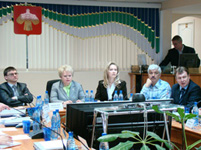
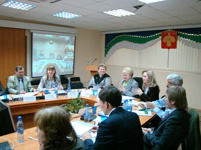
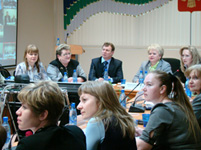
The conference participants of the online discussion shared information about the most efficient forms of cooperation between universities and business companies in home regions, defined the problems in that type of cooperation, gave information about how the efficient cooperation had been developing and tried to define what type of specialists are required by current business. Discussion sticked to the following frame: Nowadays the conditions of cooperation between universities and business companies are changing rapidly in Russia. Quite often we face the situation when graduate students need to get additional professional training just at the beginning of their professional career. The State started encouraging cooperation between educational institutions and business enterprises in order to solve lack of qualified personnel, because all the parties benefit from the interaction: the State which provides some financial support, business companies that get well-trained employees and higher educational institutions which get the permanent development of the teaching staff, new research project ideas and well-trained, in-demanded graduates. Colleagues from different regions shared the experience they have in the subject matter of the videoconference. List of participants
Participants from the Komi Republic have noted that the personnel issue is one of the key elements in the forest cluster development, especially at enterprises which use modern technologies. In order to become a qualified specialist the student has to pass all steps in professional training, should simultaneously combine theoretical and practical knowledge. For this purpose "Lesnoy cluster" is established in the Komi Republic – a new step in cooperation between basic vocational, intermediate vocational and higher vocational professional education, which will definitely influence the quality of the forest cluster specialists; students can also get a university degree and study the blue-collar specialty at the same time. Higher educational institutions started to reconcile the content of the regional component in the studying curriculum with the republican enterprises. Since the third year of studies, the student should be focused on the certain employer, by carrying out the coursework and having practical training at a certain enterprise. In these conditions the new project "Komi Forest Academy" was established last year by OJSC "Mondi Syktyvkar" together with the republican government and higher educational institutions. Syktyvkar Forest Institute is an active participant of the project. Big republican enterprises are really interested in high-qualified, well-trained, honest personnel that are ready to improve the competences while working for the company. When working out the competences, universities should take into account the enterprises interests, in their turn, companies assist in establishing laboratories and resource centers at universities. Business representatives are apt to think that one of the main problems in the studying curriculum is lagging behind the recent technical development. The republic lacks professional specialists able to work with modern forest machines, lacks high-qualified mechanics for example. That’s why forest companies representatives should be involved in the teaching process by giving lectures or master-classes, practical training; but we should keep in mind further training courses for the lecturers at the enterprises and joint participation in research projects. Participants from Mari-El State Technical University (MSTU) informed that the new innovative business centre was established in the University. Ten small enterprises appeared and their main aims are establishment of new production in the region, postgraduates’ employment and commercial activities of the university. Each enterprise’s got 1 mln rubles for its development from Bortnik foundation. Mari-El students can learn blue collar jobs at intermediate vocational colleges while getting a degree. MSTU participants suggested:
This year for the first time colleagues from University of Eastern Finland (Joensuu) took part in the International Council videoconference. They told that enterprises in Finland are involved in the educational process. Members of company staff give lectures, are involved in the research and development activities, they define the topics for the thesis works, sometimes finance students’ research. Students also have practical training at enterprises; the duration depends on the companies. University considers that type of cooperation really important. There are also small innovative enterprises at the University, which are established as a part of University; later on they can exist as a separate structure. Forest cluster development depends on the researchers, university lecturers a lot and there are certain proofs for that already now. Partners from Petrozavodsk State University (PSU) informed the participants about the projects and programmes, which take place at university, that university lecturers get practical skills, have joint conferences, for instance with "Ponsse" company. Business sometimes treats native education consumptively. Being honest is not enough for the specialist; one should have a lot of competences to become a really good professional. The Federal law № 217 – FZ dated on 02.08.2009 about the establishment of small enterprises based on the scientific and research works at research and educational institutions still makes the frame, there are no well-developed mechanisms of small innovative enterprises implementation. Colleagues from PSU also invited the participants to take part in the international exhibition "Interles" on 25-27 June in Petrozavodsk, in the section – "Forestry education". Vyatka State University gave information about practical training of the students at the local enterprises, where they also get the good topics of their thesis works. So as a result, the enterprise has an opportunity to select the students and hire them after graduation, the students can choose the future work placement. The participant from Komi Regional Non-Profit Foundation "Silver Taiga" told the facts he learned from his experience when he was in Sweden, how cooperation between HEIs and business developed there. He also mentioned that when the student is hired by the company he/she lacks practical skills that make the weakest point in the today’s learning process. He is also sure that to be able to teach practical issues the lecturers should also have practical training period or internship at business companies; business should also get the understanding and be interested in that. Colleagues from Rovaniemi University of Applied Sciences informed that the students have practical training in 2 phases (in the first and third year of study). Another requirement is a customized thesis work for working life. At the moment about 100 % of thesis works are made for different forest organizations or enterprises, as a result it leads to better interaction, gives more exchange of knowledge, improves co-operation and provides common benefits. In RAMK there’s continuous co-operation during some professional courses, for example lecturers from the companies and working life organizations are invited and students get practical exercises and tasks from local forestry organizations, like forest planning, logging, different kinds of forestry or environment projects etc. Lecturers and university staff co-operate in national and international projects. Company representatives take part in curriculum development, there’s a kind of circulation of a new curriculum proposal for comments, a consultative committee in future plans meets next autumn (composed of several forestry interest groups of our degree programme). Informal relationships with forestry organizations (companies, enterprises, forest service and private owned forest organizations) also bring a lot to cooperation between HEIs and business companies. The colleague from Göttingen University of applied sciences and arts gave information about cooperation of an educational institution and business companies in Germany. University of applied sciences and arts has to use the knowledge of external lecturers (often alumni) up to 20 % of the total study workload. They are payed 30 – 40 € for the 45 Minutes hour. The money they get from the budget of vacant professors or the study fees. The aim is to teach the students what they need not what a professor knows. These external lecturers teach mainly fast developing and changing subjects like logistics, IT, GIS, financing and of course also the simple practical things of a forester he does the whole day. Like marking future trees, organize a harvester operation or planning a truck road, combined with an excursion and practical experiences. Beside that there are international projects like log house building course in Kuru or Forest Fire Management in Cyprus. Further on, there is a big selection of bachelor thesis themes from the practice and the industry. Mainly the students are coached by one professor and one man out of industry or practice. Business games are organized with carpenters or pottery for example to sell something with our logo. Calculation and marketing is done as training beforehand. Together with SFI we want to establish a laboratory for young people entrepreneurship development to initiate things like that. The main task will be to find an idea and make out of it an aim for a business. There’s more than 15 years of experience that will be used in this project. Tampere University of Applied Sciences also commented on the subject matter of the conference. There’s a 4-year forestry degree programme (240 ECTS). The structure of the studies is shortly: Basic studies: 120 ECTS
When it comes to co-operation with companies one should start from on the job –training. It is, as mentioned 30 ECTS, which means 5 months. Normally all the students are themselves responsible for getting a training placement. All bigger enterprises (like UPM, StorEnso and Metsaliitto) have an internet system for trainee applications. Smaller companies normally employ by traditional methods. In Finland forestry education institutions and companies have a long tradition of having trainees in companies so it is normally quite easy for the students to take contact to the companies. The companies also know quite well what it means if a student informs that "he is a 3rd year student from TAMK forestry degree programme" etc. Very often the companies also send messages to the university informing that they would need a trainee for some period. With some companies and forestry organizations we have already a long history of co-operation. Personal relations are quite important. During the training the students are paid a trainees salary. The university keeps in contact during the training period, but the tasks they are given are from the company. During the training the students must keep a diary and after the training they will make a final report and also give a short oral presentation for other students. Each student and the company's representative and one of TAMK teachers will have a meeting during the practical period. This is also a good way to get a feedback. What the employers expect of the students are: self – directiveness and motivation, interpersonal skills, computing skills, orienteering skills, forestry skills (knowing enough of forests and forestry and ability to make decisions). Of course this depends on the type of the job they are offering. Very often after the training period the employers want to offer a permanent job for the trainee after his graduation, if the trainee has been good enough. Another important part of studies is final thesis. More than 90 % of our final thesis is made for the companies by their initiatives. And very often the idea for the thesis starts during the training period. The university teacher only has to take care of the writing process (giving instructions to the student). One part of the students' professional studies are so called project studies. These are small research and development tasks given by companies and other organizations. Students normally do these in small groups (2-4 persons). They are not paid any money, but they get credits (ECTS) of these. The amount of project studies in our curriculum is 5 ECTS. Besides practical training, final thesis and project studies TAMK also has a lot of co-operation with companies in different courses (basic studies and professional studies). We for example visit different sawmills, paper mills, logging operations, nurseries etc. TAMK forestry degree programme is also involved in several R&D projects. Very often in these are other higher education institutions involved, but also private enterprises. Teachers are trying to get the students more involved in these projects, because nowadays there aren't many students involved directly in our projects. Finally, all TAMK degree programmes have an advisory board. In forestry degree programme it consists of seven members. 6 of them represent different forestry organizations and one represents our students. The Head of the Forestry degree programme acts as the secretary. The board has normally 2 meetings during the year. In these meetings the board members get information of what is happening in TAMK, but at the same time have the opportunity to influence certain decision, for example comment the structure of the curriculum. Estonian University of Life Sciences finds this issue really important for the university. They mentioned that the co-operation between educational institutions and companies is a very important both in education and in research as well. The students have in curriculum the enterprise training which prolongs 6 weeks. During this training students obtain knowledge about the organization of activities at the enterprise. Students also collect data for the diploma thesis. The training is a „voluntary work” for companies. But the managers of companies see also benefits, e.g. many trainees will after graduation be hired by the companies. The co-operation of university and companies takes place within different programs, supported financially by "Enterprise Estonia". Examples of this kind of programs where the Institute of Forestry and Rural Engineering participates are "The Cluster of Wooden Building", "The Competence Centre of Wood Technology". So, according to the results of the videoconference we can make a conclusion that the subject matter of the efficient co-operation is relevant and important for all participants form the Finno-Ugric countries and RF regions. The main forms of co-operation between educational institutions and business companies are:
07.04.2010 Video conference: "Innovations in the forest sector" The second videoconference: "Innovations in the forest sector" proceeded on April 7, 2010. Innovation issues make acute and debatable points in the Russian Federation and in the European countries' development, therefore the participants introduced different regions' experiences in working innovations out, selection and implementation of know-how; discussed the problems they face also defined the next trends of the Council's activities. Summing up the discussion at the videoconference on April 7 "Innovations in Forest Sector", one can say that innovation issues and challenges in forest sector economics development are acute and attract much interest in all the Finno-Ugric Russian regions, Estonia, Finland and Sweden. The participants of the videoconference shared their own experiences in innovative thinking, implementation and bringing up ideas how to stimulate students, lecturers personal for innovative development. Having analyzed the introduced ideas presented by the participants and adding our own proposals, we introduce trends of activities of the International Council in forestry higher education professional training in the Finno-Ugric countries and the Russian Federation regions:
Proposed topics for the round of video-seminars:
Videoconference "Innovations in forest sector". List of participants
The first online round table discussion "Professional forestry training: International experience, cooperation perspectives and training services quality improvement" was held on August 21, 2009. Syktyvkar Forest Institute has got the clear understanding of the necessity of collaboration within the frame of training, business and research in order to provide the graduates the required professional knowledge and skills. Different projects, joint agreements, various meetings, seminars, conferences and master classes aim efforts at that goal. Participating in various International projects and joint activities SFI's lecturers gain new insights into updated knowledge dealing with the forestry, road construction, technological, technical, economical, ecological issues. We make much of the achieved significant research experiences of different countries, which have brought up substantial result already and we would like to learn different approaches, analyze the materials and work out the way appropriate and efficient for the Russian and Komi conditions. During the discussion all the participants have supported the idea of the International Council establishment, introduced ideas for the next discussions like: R&D opportunities in the partners universities, cooperation with forest SMEs, told about the best experiences at their universities. The participants also introduced the idea that each meeting might be initiated and organized by different universities in the topic which is acute and worked out. Participants of the round table discussion:
|
Синтез речи воспроизводит в звуковой форме текст размещенный на странице, производит процесс тифлокомментирования фотографий в которых присутствует описательная часть. Для прослушивания нажмите на кнопку "треугольник вправо" (play) или наведите курсор (указатель мыши) на текст. Для остановки - нажмите на кнопку с квадратиком (stop).
Внимание! Работает не во всех браузерах и операционных системах. Рекомендуем использовать Google Chrome или Яндекс Браузер.


